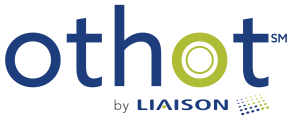At a recent Othot seminar, nearly 70 percent of attendees said that data plays an important role in their decision-making process related to student success. The overwhelming response is exactly what we, a data science company, want to hear.
Data helps understand who your students are and supports your decisions about interventions to support them along their academic journey.
Adopting a holistic approach to student support can provide insight into your students' unique challenges and opportunities and provide you with the necessary information to intentionally impact each individual.
To create a holistic view of your students you need data that goes beyond historic enrollment and retention data. It requires collecting academic, behavioral, and interventional data. Collecting data is not always easy.
Data collection is a journey: start with what you have, add as you go.
We wrote this post to guide schools along the data journey so they can have a holistic view of their students. We’ll discuss why you need data, the data mindset, and offer some tips to overcome obstacles you may encounter along the way.
Why is Data So Important in Higher Education?
“Data is the new oil of the digital economy.”
- Clive Humby, UK Mathematician and architect of Tesco’s Clubcard
Data is an asset. It’s a critical part of decision making—from what to have for dinner or watch on Netflix to what interventions will compel a student to retain and graduate on time.
Be mindful of the data you collect and how you treat that data. If you start with garbage data, you’ll end up with garbage decisions, and even the best models can’t fix poor data.
What does it mean to invest in your data?
Like any asset, data requires investment to properly collect, clean, prepare, and analyze the data. The more you invest in data, the more improvements you’ll see in your analysis and, ultimately, your decisions.
Here are some questions to consider when planning your investments and resources along the data journey:
- What data are you currently collecting?
- What additional data can you collect?
- What infrastructure is required to collect additional data?
- Can you consolidate all the data in one place?
The main takeaway - start investing in data now! You can’t collect it after the fact!
Making Data the Habit – The Data Mindset
Author Charles Duhigg writes in “The Power of Habit” about keystone habits, “the small changes that people introduce into their routines that unintentionally carry over into other aspects of their lives.”
For example, better sleep leads to more exercise and eating healthier.
The same is true for institutions focused on data – they will see improvements in processes and decisions. Think about it in the context of student success.
When your counselors meet with students, do they collect data about the visit? For example, if a student’s parent lost her job or is food insecure, and the counselor offers resources about financial aid or foodbanks. Those actions and decisions should be collected because an analysis may uncover process improvements, warning signs, or other resources to recommend.
The data aids in decision-making and can be used to justify policies or investments in other interventions.
The data habit also enables using AI and advanced analytics for decision making and other purposes, and ultimately, benefits your decision process.
Obstacles
Changing habits is hard.
Think about the last time you promised you’d read more, drink more water, or go to bed earlier. How long did it take to make that promise a habit?
Your data journey is no different.
Here are a few of the obstacles you may encounter along the way and some ideas to consider to overcome those obstacles:
- Data collection consistency. Who is entering the data? Is it always entered in the same way in the same system? Can the data be exported?
- Transactional data collection. Aggregate data can be derived, but the opposite is not possible. Transactional data allows feature engineering (Othot can help here too).
- Remove or replace data. For example, a student is offered aid, and they do not enroll. The financial aid award is deleted from the system. DO NOT DELETE IT! It’s important to keep it in your system for your analysis and, if you’re building models, removing that data can adversely affect modeling.
- People. It will take a concerted effort to help your people become data champions?. How will you build awareness about your data collection policies and initiatives?
None of the obstacles are insurmountable when you’re committed to the data habit and can commit the time and resources to the data journey.
What data to collect?
We’ve talked about why data is important, but you might be asking what data should you collect to create a comprehensive student profile?
Start with the following and try to collect some data in each category:
- Admissions data – The data is readily available and important when students just enrolled because no or little other information is available yet.
- Grades and Academics – This data includes variables such as placement exams, number of classes taken per semester, GPA, and number of courses/credits left. Data from the LMS is great to collect, but usually not very easy to obtain.
- Finances – Financial aid data is usually available. Variables include initial financial aid package, private loans, work-study jobs.
- Academic Career Choices - Variables include major declared, major switches, switching academic schools.
- Academic Related Behavior - Variables include tutoring center visits, attending required meetings with counselors, and other meetings with mentors, advisors, peers. This data may be sparse.
- Campus Engagement Behavior – Variables include off-campus/on-campus residency, Outside the Classroom Curriculum, number of student organizations. This data can be difficult to obtain.
- Job Success Related Behavior – Variables to collect include semester of first internship/co-op, number of internship or co-ops, job posting board interactions. This data is not readily available all the time.
- Health and Wellness Related Behaviors – This data includes card swipes from the gym, dining hall, dorms, etc. It is the hardest to get, and there may be privacy-related issues.
Final Prep for the Data Journey
Lastly, here are some final tips for your data journey:
- Create an assessment of where you are and where you want to go. That will help you guide your data journey and get others on board because you will need internal support and resources to succeed.
- Talk to IT about your different systems, needs, and support. Put together some policies that explain why data is important to your organization. If you’re not the data champion, then find someone to serve in that role. They will help build support for the initiatives.
- Ask for help. Many vendors can help you with this process. At Othot, we have standard practices for data collection and data maps and can assist with feature engineering. We also help make the data actionable through modeling/AI.
Data is an important asset for many processes, including modeling and facilitates the creation of comprehensive student profiles to increase the chances of student success.
By adopting a data culture and mindset, data will be more readily available, improving your decisions and your retention and graduation rates.
Do you want to learn more about the data journey?
Watch a recording from our seminar, “The Future of Data for Student Success."
Read our blog post, “The Data Trust Journey.”
Download our Managed Data Checklist to take the first steps in your Data Journey.
If you have questions about the data journey or need help getting started, contact us at othotteam@othot.com.





